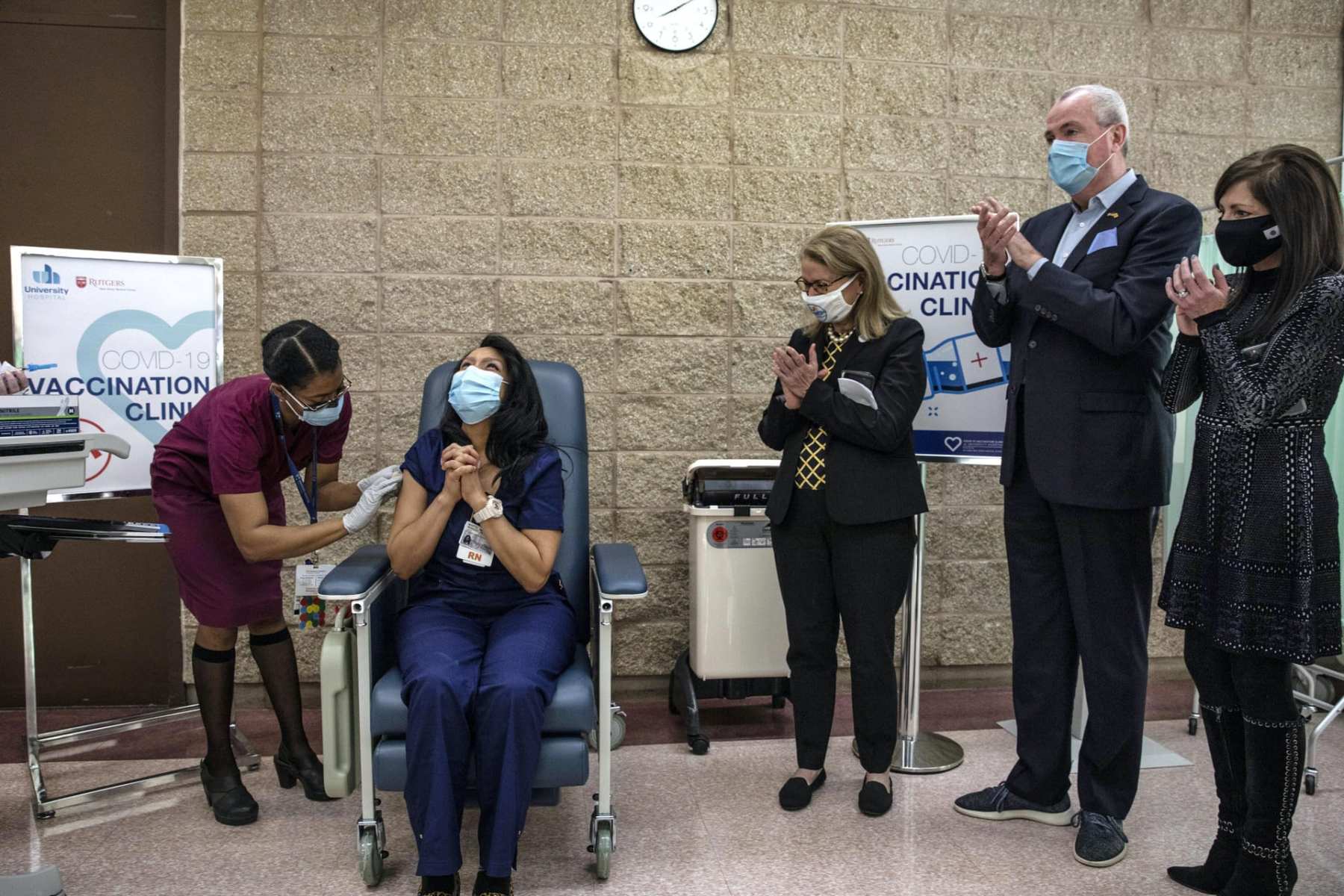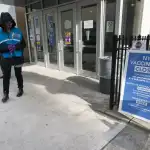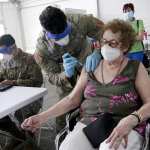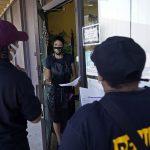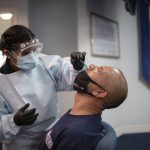The women went first.
In hospitals across the country this week, woman after woman became the first in their states to receive the COVID-19 vaccine, serving as symbols of the risks health care workers — the majority of whom are women — have faced this year while working to contain a pandemic that has taken more than 300,000 lives.
Many of them are nurses tasked with care work — work that is often undervalued and gendered — and yet this year, it embodied the word “essential” in every sense. So essential, in fact, that it was those women, many of them women of color, who were among the first in line to get the vaccines when distribution began.
An analysis by The 19th shows about two-thirds of those who were the first or among the first recipients of the vaccine in the 39 states that had inoculated workers as of Tuesday afternoon were women.
“Seeing the actual frontline workers … the ones who are in the faces of people who present with COVID symptoms, who are doing the testing to see whether they’re positive, who are setting them up on ventilator — that’s women,” said Jennifer Greenfield, an associate professor at the University of Denver who studies the intersections of health and wealth disparities. “It’s fantastic news that those are the ones who are getting vaccinated first, that the system is seeing them.”
The images of those vaccinations, widely shared across social media, showed the faces of resilience that have withstood long after the parades honoring health care workers ended. Even more are expected to get access soon. The Food and Drug Administration, which recently approved the first available vaccine developed by Pfizer and BioNTech, is reviewing a second vaccine by Moderna that is expected to expand access in the coming weeks.
It’s likely that those first in line to take the next rounds will also be women. More than 75 percent of health care workers fighting the coronavirus are women — many of them Black and Latina, according to an analysis by the National Women’s Law Center.
It’s no coincidence, then, that the first vaccine given in the United States went to Sandra Lindsay, a Black nurse at Long Island Jewish Medical Center in New York. It was administered by Dr. Michelle Chester, also a Black woman.
It conjured a powerful message in a year in which Black people have been more prone to get the virus due to systemic racism.
Dr. Sylvia Owusu-Ansah, a pediatric emergency medicine physician, carried the image with her when she became one of the first people to be vaccinated in Pennsylvania. As she sat in her purple scrubs ready to receive the vaccine on Monday, the Black mother of two thought of her biracial daughters.
“Because they are brown girls, I really, really wanted to highlight something for the African-American community,” said Owusu-Ansah, who is also the associate vice chair of diversity, equity and inclusion at UPMC Children’s Hospital of Pittsburgh.
She hoped to send a message of positivity and hope to a community that long ago lost trust in the institution of medicine. That distrust has historical connections, dating back most prominently to the Tuskegee syphilis study conducted from 1932 to 1972 by the U.S. Public Health Service. The study tracked how syphilis progressed in a group of 600 poor Black men who weren’t told they had the disease and who weren’t treated for it.
Lindsay, the first person to receive the vaccine in the United States, said she did so in part because of Tuskegee, hoping to build confidence for the COVID-19 vaccine.
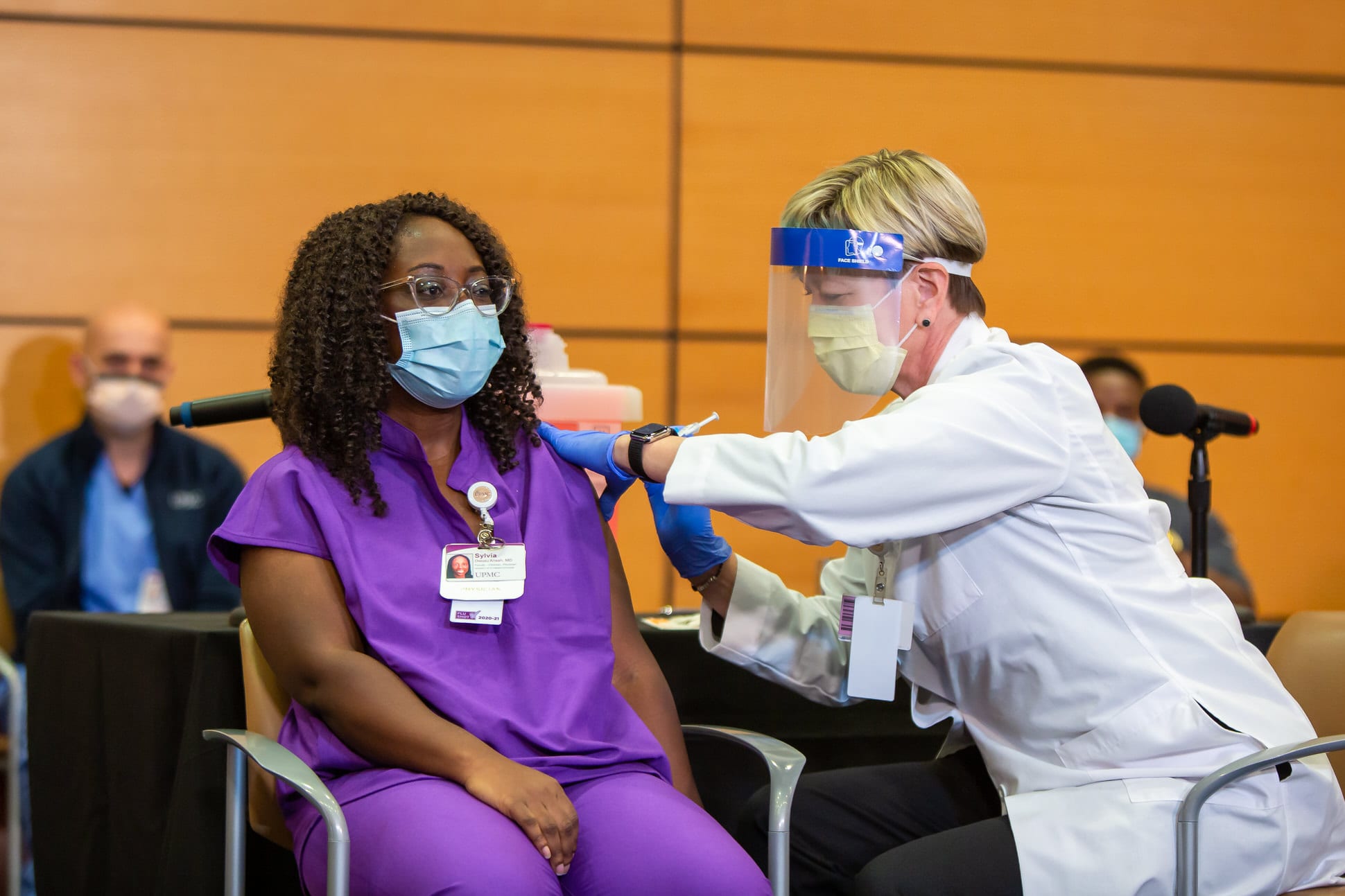
The legacy of Tuskegee has grown intertwined with the systemic racism that has permeated so many systems in the United States, said Sirry Alang, associate professor of sociology and health, medicine and society at Lehigh University.
“Black people see systems as systems — the man is the man,” Alang said. “So when people mistrust one system, they mistrust others.”
According to a poll by the Pew Research Center, Black Americans are the least inclined to get vaccinated. Only 42 percent said they would, compared to 63 percent of Latinx people, 61 percent of White adults and 83 percent of English-speaking Asian Americans.
That’s why seeing women of color receiving the vaccine is an important step toward making more people feel comfortable receiving it, too.
For Alang, the video of Lindsay’s vaccination encapsulated so much of what she’s seen this year, with Black women leading the Black Lives Matter movement, Black women voting in droves, a Black woman ascending to the vice presidency and a Black woman — Dr. Kizzmekia Corbett — leading the development of one of the vaccines.
“To me, it’s Black women lead,” Alang said. “It shows that our communities are doing what needs to be done.”
The symbolism has played out again and again. In Washington, D.C., Dr. Sheetal Sheth of George Washington University Hospital was surrounded by American flags as federal officials watched her receive the vaccine on Monday. Maritza Beniquez at University Hospital in New Jersey was the first person in the state to receive the vaccine on Tuesday. The 56-year-old Latina and emergency room nurse put her palms together, as if in prayer, seconds after getting inoculated on her birthday.
Non-medical hospital staff were also among the first to be vaccinated. Teresa Mata, an environment services worker who cleans the emergency room at Methodist Dallas Medical Center, was the first in Texas to receive the vaccine on Monday.
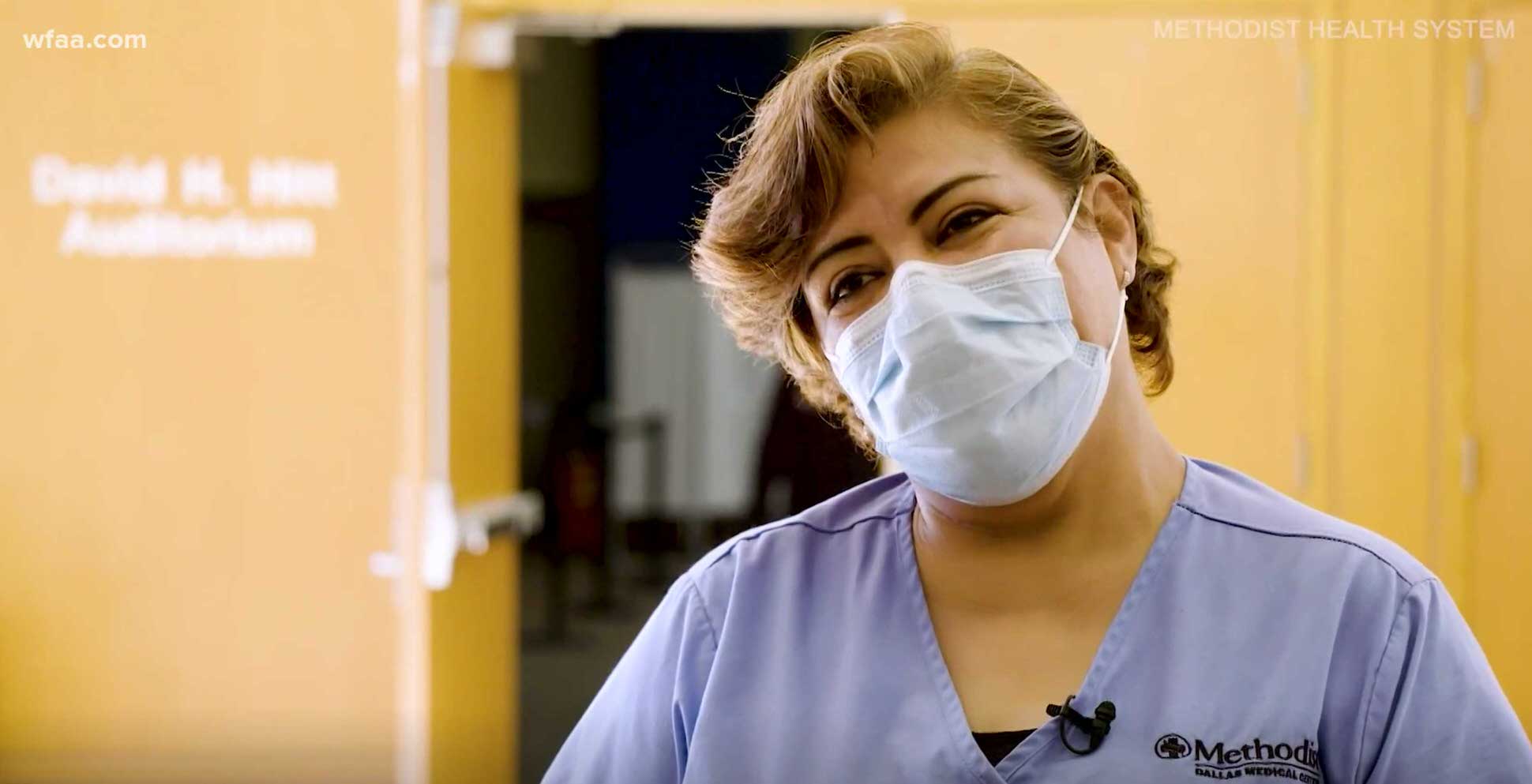
And in Illinois, Dr. Marina Del Rios was the first in her state. Del Rios, an emergency medicine doctor who has been a vocal advocate for the Latinx community during the pandemic, said that getting her vaccine administered by a woman, in a room surrounded by other women of color, encapsulated the experience of this year: The rooms where history and suffering have commingled this year have been staffed by women of color.
She’s watched the clip of the nurse in New York maybe 10 times, her eyes welling up with tears at each subsequent watch, more moved by that moment than her own because of what it meant.
Getting to this moment symbolizes “relief and understanding,” Del Rios said, “that the end is closer than we thought.”
